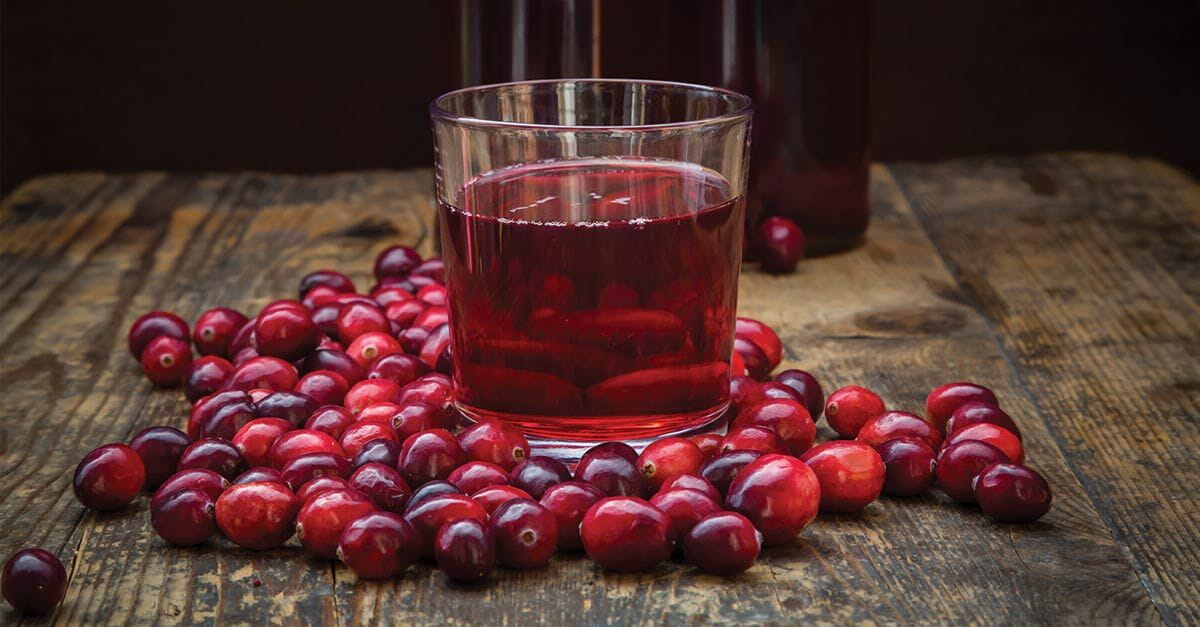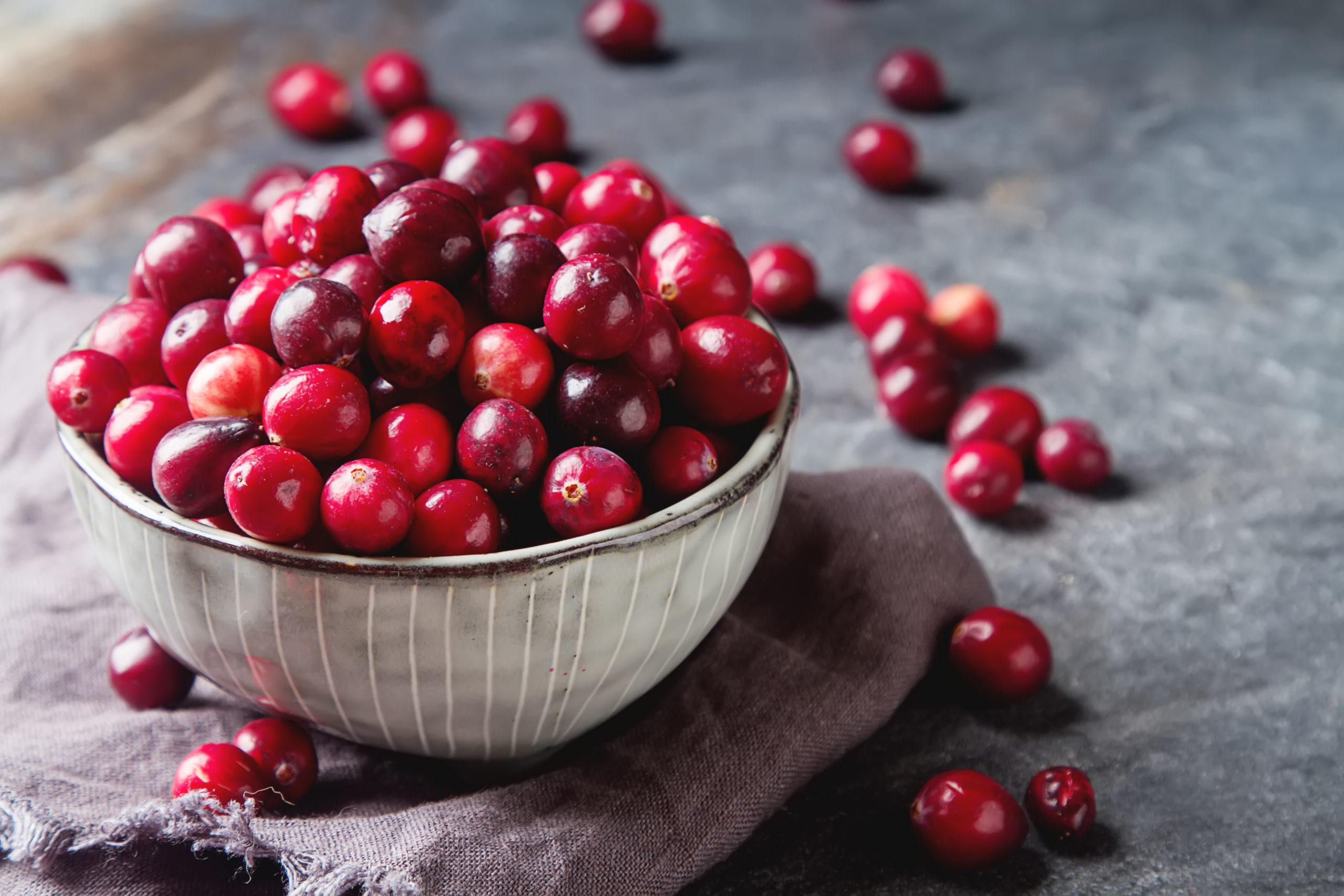An ingredient in cranberries may help, but you might want to instead consider dietary supplements.
Making an emergency run to the grocery store to stock up on cranberry juice for a urinary tract infection (UTI) may be a ritual for people prone to the common health issue. In fact, UTIs happen to up to 60% of women at some point during their lives.1
People have long considered cranberry juice a home remedy for warding off those annoying infections. But does cranberry juice prevent a UTI?
Overall, there’s little high-quality research on the effectiveness of cranberry products on UTIs.2 And the evidence that does exist on cranberry juice, particularly for reducing the risk of recurrent UTIs, is limited and conflicting.3
But even if the beverage doesn’t prove preventative, you may want to avoid writing off cranberries for UTIs. Here’s how an ingredient in cranberries, found in supplements, may be helpful.
Cranberry for Preventing UTIs
There’s bad news if you’ve stockpiled an arsenal of cranberry juice to battle UTIs. The tart elixir probably isn’t helping as much as you’d hope.

In 2012, a review of 24 studies examined whether cranberries could prevent UTIs. According to the researchers, cranberry juice didn’t seem to impact reducing cases of UTIs significantly.4
Still, there may be some truth to the idea that cranberries can prevent UTIs. It is a substance inside the fruit called proanthocyanidin (PAC).
“PAC prevents bacteria from sticking to the lining of the bladder,” Courtenay Moore, MD, a urologist at The Ohio State University Wexner Medical Center in Columbus, Ohio, told Health. “It creates a slippery coating in the urothelium [a thin tissue that lines the lower urinary tract], so you just pee out the bacteria.”
Theoretically, PAC makes it more difficult for the bacteria to stick around long enough to form an infection in your bladder or other spots in your urinary tract. In fact, some research has found that cranberry products were about as effective at reducing those infections as low-dose antibiotics.4
However, the key thing to remember about those findings was that cranberry products, like supplements, were effective—not cranberry juice. The beverage itself isn’t considered adequate because it doesn’t usually have enough PAC to make a significant difference, explained Dr. Moore.
“You’d have to drink two liters of cranberry juice a day to have enough of the active ingredient to be beneficial,” added Dr. Moore.
Also, many cranberry juice drinks pack added sugar to offset their tart flavor. Excess added sugar could adversely affect your overall health and nutrition.
Do Cranberry Supplements Prevent UTIs?

Rather than trying to sip your way to fewer UTIs, consider taking a cranberry supplement. They’re made with a specific amount of PAC, so you know exactly how much you’re getting.
Like juice, cranberry supplements have mixed evidence of their ability to prevent UTIs. According to a review published in 2017 in the Journal of Urology, cranberry products significantly lower the rates of UTIs.5
But other research on UTI-prone people—like older adults, nursing home residents, and those with spinal cord injuries that make bladder control difficult—has found that cranberry supplements don’t help decrease infection rates.67
More research is needed to determine whether cranberry supplements prevent UTIs. But as of November 2022, since there’s no evidence that those tablets cause harm, they might be worth a try, especially if you frequently come down with UTIs.
“I have plenty of patients who will load up on cranberry supplements around sexual activity, and for some women, that’s enough to prevent a UTI,” said Karyn Eilber, MD, a urologist at Cedars-Sinai Medical Center in Los Angeles and founder of Glissant.
Additionally, Dr. Moore recommended cranberry supplements, stating that “there are no downsides to taking it. There’s no gastrointestinal toxicity and no risk of [developing bacterial] resistance.”
“If we can prevent infections using supplements, it can help reserve antibiotics for [the] actual treatment,” added Dr. Moore.
How To Choose a Cranberry Supplement for UTI Prevention

If you’re thinking of trying cranberry supplements for a UTI, consult your healthcare provider. While cranberry tablets aren’t necessarily dangerous, it’s always a good idea to discuss trying new supplements with your healthcare provider.
You can find several cranberry products at the drugstore, but not all supplements are created equal. Dietary supplements have far less regulation than pharmaceutical medications, and what’s stated on their packaging may not be what’s inside the pills.
In fact, a study published in 2018 in JAMA Network Open revealed that 776 dietary supplements contained unapproved ingredients. So, you’ll want to do your homework to ensure you’re getting a reputable cranberry tablet for UTIs.8
Bruce Sloane, MD, a urologist at Philadelphia Urology Associates, told Health: “People should look for a high-quality supplement that has some sort of certification, like the USP Verified Mark or NSF certification. That means it’s been sent to an independent lab that has verified that what the companies have said is in the supplement is actually in the supplement.”
And keep in mind: If a third-party lab has verified a supplement, the manufacturer will usually identify that on the label.
You should also check how much PAC the product contains. Clinical trials have shown that cranberry pills need at least 36 milligrams of PAC to reduce UTIs.9
Additionally, many cranberry supplements contain a combination of other ingredients that may boost their ability to fight UTIs. One common ingredient is D-mannose, a simple sugar similar to glucose. A small pilot study has shown that D-mannose may help prevent and even treat UTIs.10
Remember that some supplements’ ingredients can cause unwanted side effects. So, talk with your healthcare provider to see if a cranberry supplement with some of those different substances is the right choice for you.
Can Cranberry Juice Treat a UTI?

Once you’ve got an infection, there’s no proof that cranberry juice can clear an existing UTI.2
In fact, chugging cranberry juice may even cause some harm, according to Dr. Eilber.
“Once you have a bladder infection [a type of UTI], the acidity from the cranberry can make things worse,” explained Dr. Eilber. “If you are taking cranberry supplements when you have a UTI, and you’re getting worse, stop. It’s time to get your urine checked to see if you need antibiotics.”
Your healthcare provider will ask you about your symptoms. And if it seems like you have a UTI, you’ll likely submit a urine sample and begin a course of antibiotics.
Depending on the results of your urine sample, you may need to switch to different antibiotics that are better at dealing with the bacteria, if the one you’re already taking isn’t working.
The good news is that those horrible UTI symptoms, including a burning feeling while peeing and frequent urge to run to the restroom, will subside after a couple of days.
Just be sure to keep taking the entire course of antibiotics as prescribed. Otherwise, you could create a strain of antibiotic-resistant bacteria that’s difficult to treat.
Who Should Avoid Cranberry Products?

Some people may want to pass on cranberry juice and supplements for health reasons. For example, people with a painful bladder condition called interstitial cystitis should avoid cranberry juice because it might trigger an inflammatory flare.11
If you’re taking the blood thinner warfarin, you also may want to avoid cranberry products.12 While the evidence is conflicting, cranberry may boost warfarin’s anti-clotting effects, leading to more bruising or bleeding.2
And if you have diabetes, cranberry beverages can be high in sugar, so taking cranberry supplements may be the healthier option.
A Quick Review
Preventing UTIs by drinking cranberry juice isn’t an effective treatment. The amount of PAC isn’t high enough, and trying to treat a UTI by drinking cranberry juice might worsen it.
On the other hand, the effectiveness of cranberry supplements in preventing UTIs has shown mixed results. Still, for most people, they’re not likely to cause harm.
That being said, it’s always best to check with your healthcare provider before taking cranberry supplements to ensure they won’t interact with other medications or health conditions.
Source: https://www.health.com







